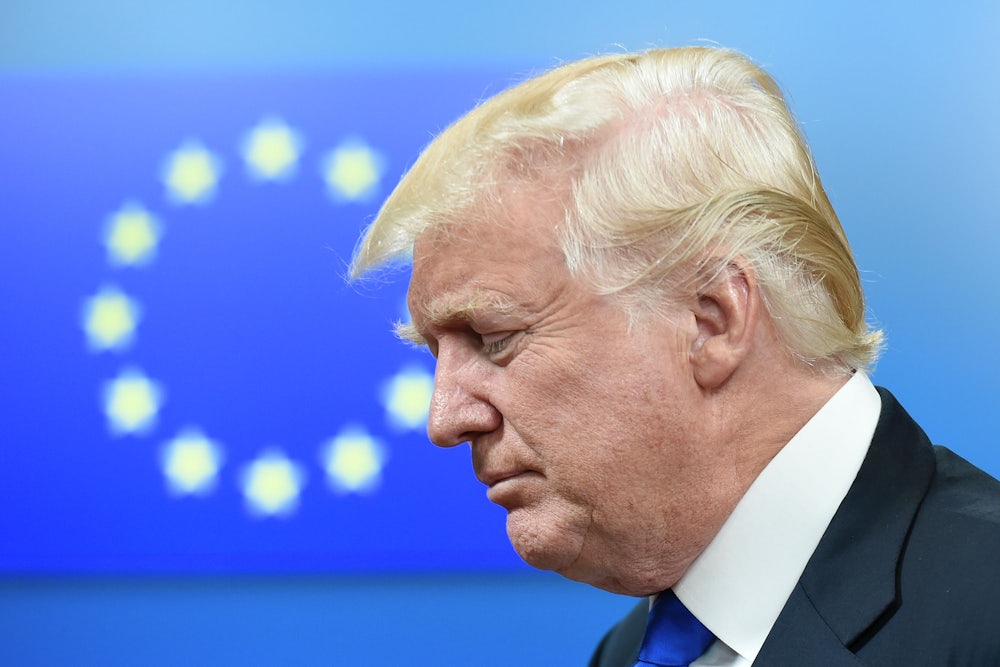In his first speech before NATO members, President Trump declined to mention Article 5 of the NATO treaty, the all-for-one-one-for-all clause that states that an attack on one member nation is an attack on all member nations. The omission was seen as another attack against NATO by Trump, but the White House was quick to deny there was any malicious intent. Sean Spicer insisted that Trump’s presence at the gathering itself was an affirmation of Article 5 and that the White House was “fully committed” to NATO and to Article 5. Nevertheless, NATO allies wanted to hear Trump unequivocally commit to Article 5, because he had spent years railing against NATO as “obsolete,” eroding trust in the long-standing alliance.
On Monday, the story got stranger. Politico’s Susan Glasser reports that there was a mention of Article 5 in the text of Trump’s speech that was approved by National Security Advisor H.R. McMaster, Defense Secretary James Mattis, and Secretary of State Rex Tillerson—and that the triumverate “had worked in the weeks leading up to the trip to make sure it was included in the speech.” It’s unclear how or why it was removed. Some believe Trump ad-libbed the omission, while others believe that Steve Bannon and Stephen Miller played a role.
In any case, as Glasser notes, this was a highly significant omission. On one level, it represents the rupture that Trump has caused between the U.S. and NATO (a rupture, it should be noted, that has been one of Vladimir Putin’s long-standing goals). On another level, it reflects the deep divisions in the White House, “with the president withholding crucial information from his top national security officials—and then embarrassing them by forcing them to go out in public with awkward, unconvincing, after-the-fact claims that the speech really did amount to a commitment they knew it did not make.”
The oddest thing is that there seems to have been no strategic or tactical reason for the omission. Such an odd and passive-aggressive decision, absent a larger articulated strategy, will only sow distrust and confusion in the alliance.
